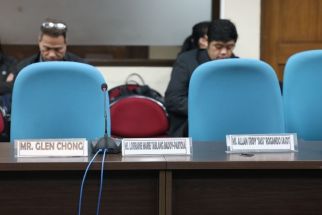Pinoys' skeletal remains passed off as those of Japanese soldiers
CLARK FREEPORT, Pampanga, Philippines – A Tokyo-based syndicate has found a new modus operandi – passing off the skeletal remains of Filipinos as those of Japanese soldiers who died in the country during World War II.
Guy Hilbero, tourism officer of Mabalacat, Pampanga and a known promoter of Philippine-Japan friendship in his town where the Kamikaze forces of the Japanese Imperial Army were founded during World War II, cited reports that skeletal remains of Filipinos have reached Japanese soil through the unscrupulous activities of the syndicate.
This was confirmed by Hilbero’s friend, Japanese businessman Koji Nakamura, who, in an e-mail, identified the alleged syndicate as the Tokyo-based Ku-en Tai, which has reportedly been buying for P1,000 each set of skeletons dug up from cemeteries in northern Luzon and eastern Visayas.
The group reportedly receives payment from the Japanese government for the skeletal remains of Japanese soldiers that are then buried with honors in a Japanese national cemetery.
This, as the Japanese people prepare for their annual ancestral ceremony called “Bon” either in July or August which, along with the New Year’s celebration, is considered one of the two most important events observed in Japan.
During the Bon ceremony, family members return to their parental homes to honor spirits of the dead who are believed to return at that time.
The Japanese people are known to remember and venerate their ancestors through purification rituals from the seventh to the 100th death anniversary of their forebears.
Nakamura informed Hilbero that earlier this month, Japan’s Ministry of Health and Welfare announced it had bought some 7,000 sets of skeletons from the group and that it is set to “officially accept” the remains as belonging to Japanese soldiers for burial in a Japanese national cemetery.
Nakamura did not say how much the Japanese government paid the group for the skeletal remains.
“But we suspect that most of the bones belonged to Filipinos,” he said, as he lamented the desecration of the graves apparently without the knowledge of the relatives of the deceased.
Nakamura said he and a certain Mr. Kamei have already sought the help of the Japanese media to expose the activities of the syndicate.
In the last 20 years, Nakamura said Kamei has been involved in finding the authentic remains of Japanese soldiers who died in the Philippines, as his father was also a Japanese soldier who died in Bontoc province during the war.
Hilbero recalled that eight years ago, he helped Japanese nationals find the remains of their relatives who died in the country during World War II.
“But even then, we always were in the company of experts from the National Museum to authenticate the remains as (those of the) Japanese because certain Japanese artifacts were almost always found with the remains,” he said.
“These artifacts are studied by the museum experts to establish at least the probability that the skeletal remains belonged to Japanese soldiers,” he added.
Hilbero urged the Japanese government to seek the help of the National Museum in searching for the remains of Japanese soldiers in the country.
- Latest
- Trending































